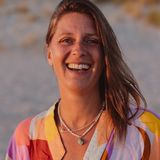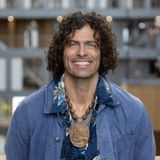The new Designing Cities for All: RE-generation series Beings of the Economy with DCFA Fellow Shinta Oosterwaal is an exploration into the idea of an economy as a sanctuary for all life. Our current economic system and thinking is resulting in polycrises. Yet beyond scenarios of doom and catastrophe, something seems to appeal to a new wholeness. We need healing responses to a deeply fragmented world with a new economy. In this series, we dive deeper, personally, and ask the question ‘how’ we may embark on a transformative journey to wholeness within the context of our economy.
The second episode of the Designing Cities for All: RE-generation series Beings of the Economy with DCFA Fellow Shinta Oosterwaal looks into healing responses. We will explore the possible transformative journeys from pain caused by the deficiencies of our current economic system to hope and getting out of a crisis mindset. We will take a deep dive into how traumatizing the economy has become and how we can heal from it both individually and collectively.





About the DCFA Fellow
Shinta Oosterwaal is a researcher at Avans University of Applied Science and co-author of the book ‘THRIVE – Fundamentals for a new economy’, among others. Together with Kees Klomp, she collected a rich palette of very real and innovative economic frameworks beyond capitalism. As an unconventional economist, she reads the economic transition as a logical and organic process of renewal in which universal and expressively un-economic values speak through new thinking and doing in the pockets of change of society as a healing response to a deeply fragmented world. Shinta is particularly fascinated by the existential dimension of transitions and by an economy as a sanctuary for all life.
About the speakers
Godelieve Spaas has been a professor of economics in common at Avans University of Applied Sciences since 2018. She conducts research from an anthropological and artistic perspective into economic principles and forms of entrepreneurship that care for the earth and all its inhabitants. She investigates what is emerging (innovative practices) or could emerge (what-if scenarios) and therefore combines thinking, doing, and imagination. She is a maker and curator at Future of Work, of an ongoing participatory artistic action research on: ‘Who owns the economy and what economy do we want? Healing responses in her research are rooted in cognitive justice and turning the economy into a common.
About this series
The Designing Cities for All: RE-generation series Beings of the Economy with DCFA Fellow Shinta Oosterwaal is an exploration into the idea of an economy as a sanctuary for all life. Our current economic system and thinking is resulting in polycrises. Yet beyond scenarios of doom and catastrophe, something seems to appeal to a new wholeness. We need healing responses to a deeply fragmented world with a new economy. In this series, we dive deeper, personally, and ask the question ‘how’ we may embark on a transformative journey to wholeness within the context of our economy.
About Designing Cities for All: RE generation
Over the first two years of Designing Cities for All (DCFA), we’ve learned about exclusion by design and the (re)design of inclusive cities. Along the journey, a certain question kept popping up: what exactly does ‘for all’ entail? After focusing mostly on the ‘who’ over the past two years, DCFA is rebooting as Designing Cities for All: RE-generation. This way around, the series is also incorporating the ‘what’ by looking through the fresh lens of regenerative design. This emerging field might very well be a promising answer to the challenges of our time, as it focuses on the design of products, services, systems, and processes that lead to both social and ecological recovery and that keep the systems healthy.


Capital Institute founder John Fullerton and spiritual teacher Thomas Hübl explore the possibility and promise of Regenerative Economics. In a stimulating four-part conversation, they examine the systemic patterns that keep our flawed financial systems in place, even when they no longer serve humanity’s needs.
In this first of a four-part series, Fullerton and Hübl discuss the “Universal Patterns & Principles of Regenerative Economics.” By learning to recognize the invisible blueprint underlying both living systems and cultural systems, we become able to exercise a new level of “response-ability” - the ability to respond to the urgent challenges humanity is facing.

This podcast features Resmaa Menakem, New York Times bestselling author of “My Grandmother’s Hands: Racialized Trauma and the Pathway to Mending Our Hearts and Bodies”. He is a visionary Justice Leadership coach, organizational strategist and master trainer. Resmaa is a leading voice in today’s conversation on racialized trauma.

Part 1 of a Series: Toward a Somatic Understanding of Climate Change, Trauma, and Transformative Healing







